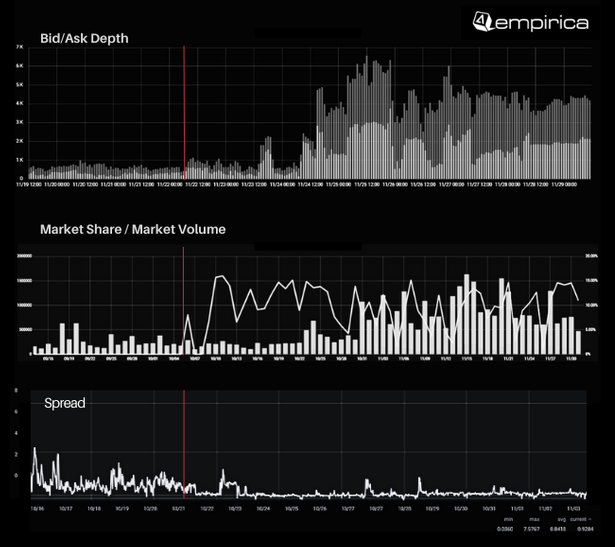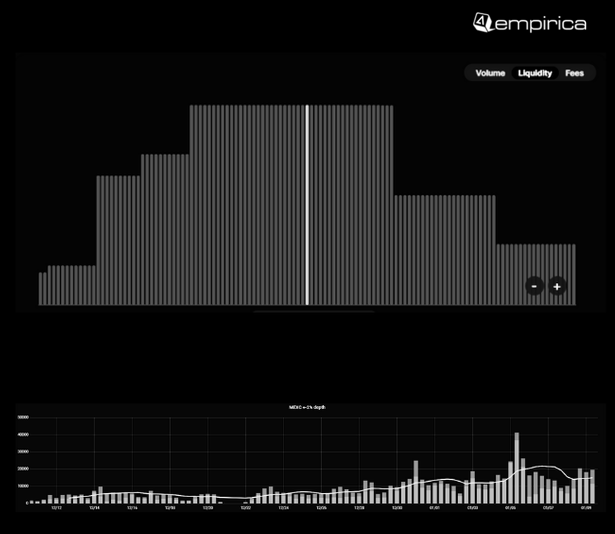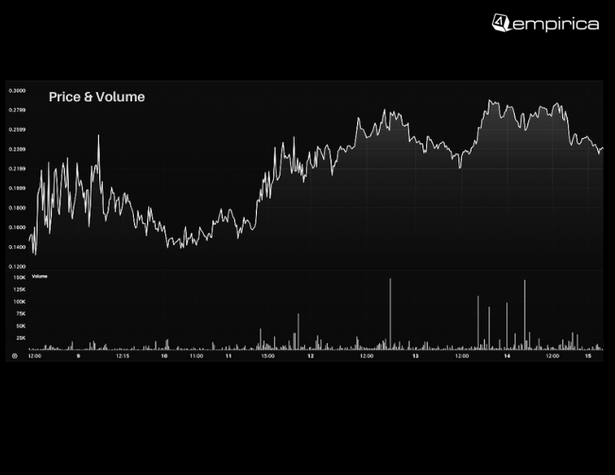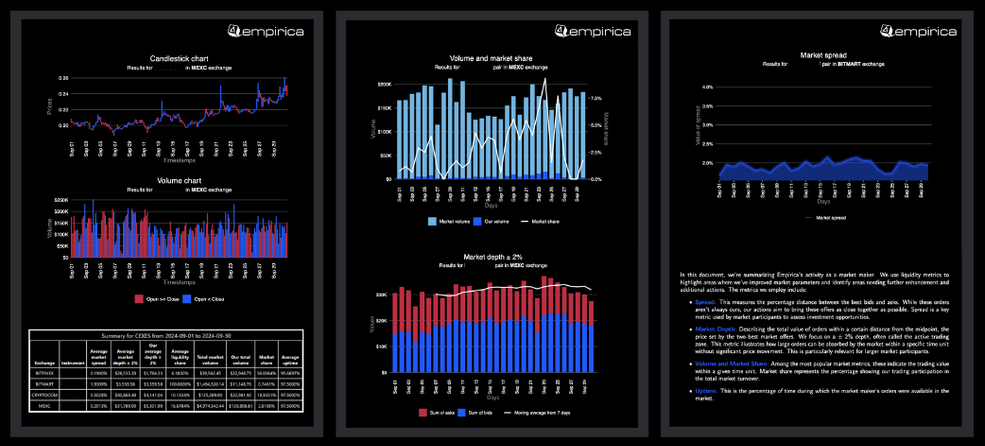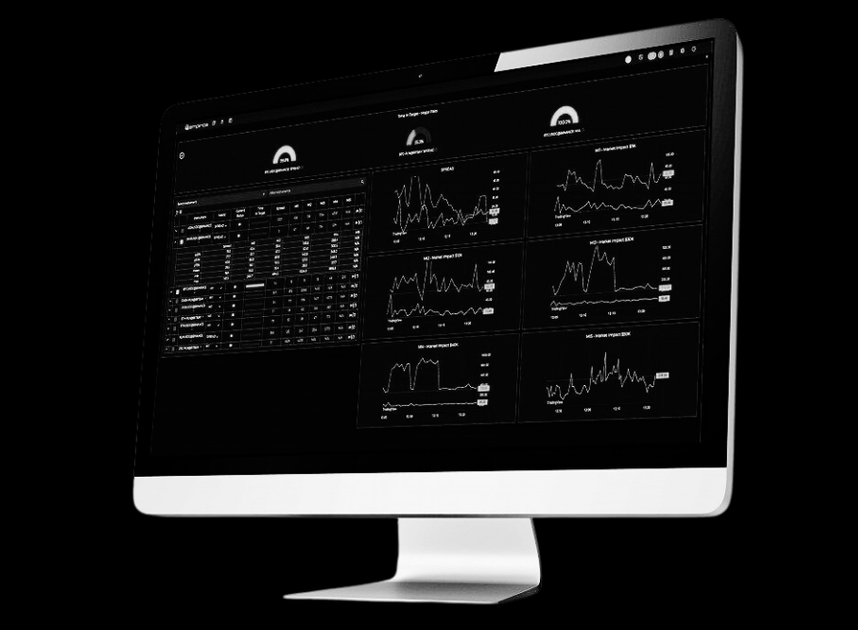Budujemy Wartość Tokenów
Dbamy, aby nasze systemy przyczyniały się do wzrostu zaufania inwestorów wspieranych przez nas projektów. Budujemy wartość tokena usprawniając jego płynny obrót na dużych scentralizowanych i zdecentralizowanych platformach kryptowalutowych oraz na wiodących regionalnych giełdach krypto w wielu krajach Europy, Azji czy Ameryki Południowej. Co z kolei przekłada się na wzrost organicznego wolumenu tokena na tych giełdach.



